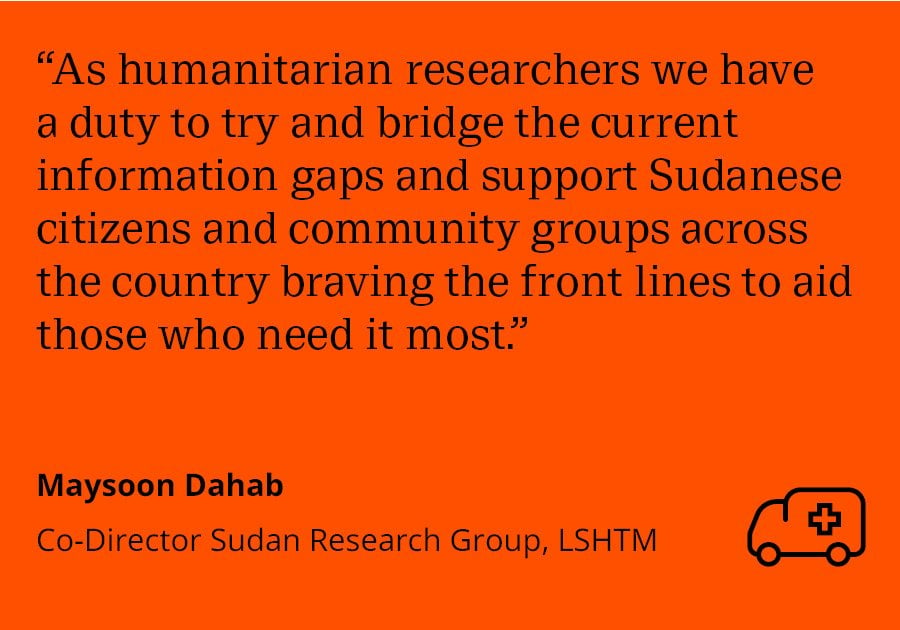
Authored by HHCC member Maysoon Dahab, and HHCC Co-Directors Michelle Lokot and Neha Singh
We are deeply concerned about the escalating crisis in Sudan caused by fighting between the Sudanese Armed Forces and the Rapid Support Forces. The conflict compounds an already challenging humanitarian situation in the country. UNICEF reports that even prior to this outbreak of violence, some 15.8 million people required humanitarian assistance. It is difficult to gather precise information but according to UN reports, hundreds have lost their lives and tens of thousands are fleeing the violence. The healthcare system in Khartoum has been severely disrupted due to the breakdown of critical infrastructure and supply chains, resulting in the closure of at least 20 hospitals. The WHO reports that one-third of health care facilities in the country are no longer able to operate and those that remain open provide only basic first aid.
This conflict will have devastating long-term consequences. Women will no longer be able to access maternal and sexual and reproductive health services and children could miss out on life-saving care, including vaccination and immunisation programmes. These health impacts will be compounded by the sizable waves of internal displacement that have already begun. According to UNHCR, tens of thousands of refugees from neighbouring countries, including South Sudan, Ethiopia and Eritrea have fled the fighting in the Khartoum area along with Sudanese nationals. These newly displaced persons are seeking refuge in existing refugee camps further contributing to an already very challenging humanitarian situation there. UNHCR furthermore warns of potential ethnic tensions, especially in the West Darfur region.
Even prior to this conflict, Sudan’s crises response mechanisms were inadequate. Alongside this conflict, seasonal disease outbreaks could have further devastating impacts on people’s health and wellbeing. Official humanitarian crises response efforts in the country have been hampered by insecurity and violations against humanitarian personnel and assets. Response efforts are left to communities and volunteers, international organisations are not yet in a position to provide humanitarian assistance in the most severely affected regions.
As humanitarian researchers we have a duty to try and bridge the urgent information gaps. This includes documenting the scale and geographic diversity of the war’s impact on health and health services. We need to employ remote methods of data collection and research where possible and support those doing their best to provide relief and response efforts in the country.
If you enjoyed this article and would like to build a career in global health, we offer a range of MSc programmes covering health and data, infectious and tropical diseases, population health, and public health and policy.
Available on campus or online, including flexible study that works around your work and home life, be part of a global community at the UK's no.1 public health university.
